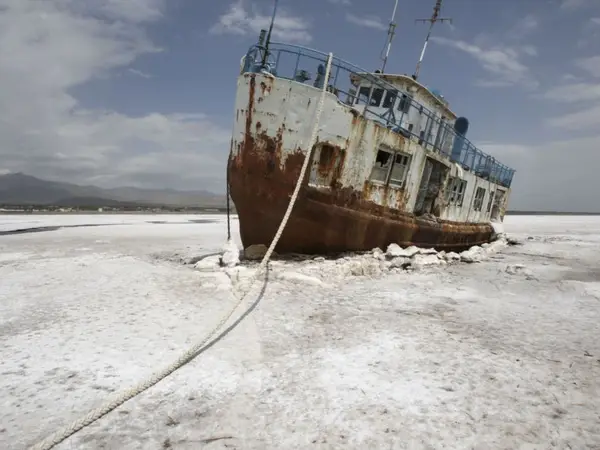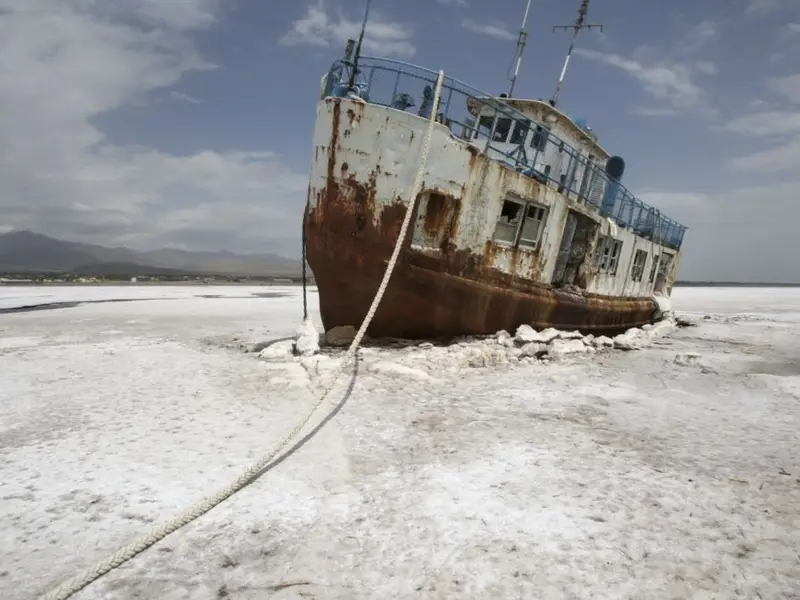The head of Crisis Management of Iran’s northwestern West Azarbaijan province says Lake Orumiyeh (Urmia) has lost about 95 percent of its water.
Amir-Abbas Jafari said on Wednesday that Iran's most famous lake has lost an average of 40 centimeters of its depth per year over the past two decades.
He said drought, water evaporation, mismanagement in development of horticulture and unscientific use of region’s water for growing crops are among the most important factors of Lake Urmia’s gradual disappearance.
The central and provincial governments are determined to revive the lake, Jafari noted.
Experts say groundwater extraction and using the water of the once bountiful Zarrineh Rud − which feeds Urmia Lake − for irrigating apple trees have both contributed to the lake shrinking by nearly 95 percent in volume over the past 20 years. In 2021 alone, more than 100,000 tons of apples of the province’s production went to waste.
Urmia, which is the largest lake in Iran and the sixth largest salt lake in the world began shrinking in the mid-1980s and was in danger of disappearing altogether until recovery plans began to be implemented in 2014.
According to authorities at the government of President Hassan Rouhani, 150 trillion rials – which can be about one billion dollars considering the lower rate of dollar against rial back then – were allocated for the plan in seven years as well as another $10 million aid by Japan and some other amounts by the United Nations Food and Agriculture Organization (FAO) and the United Nations Development Program (UNDP) to save the lake. It is not clear whether or how the earmarked budget was spent.

